
Optimize Returns Process for Jewelry & Watch Brands
Strategies to optimize the returns process for jewelry watch brands, focusing on cost reduction, customer satisfaction, and brand protection.
Shipping, Tracking & Notifications
Boost customer experience and reduce support tickets
Realtime order and shipment tracking
Proactive order and shipping notifications
AI-Enhanced Discounted Labels
Predictive pre-purchase estimated delivery dates
Self-Serivce branded order tracking
Effortless experience delivered
Identify and Resolve Order Issues
Realtime order and shipment tracking
Make returns profitable and delight customers
Flexibility to define any return destinations & conditions
Simplify returns for your customers and team
Incentivize exchanges over returns
Returns management made easy for your team
Returns management made easy for your team
Easy claims and smart upsells
Understand why your customers are returning
In-Store & Curbside Pickup
Unify the online and the in-store experience
Hassle-free pickup experience for customers
In-Store dashboard to keep operations streamlined
In-Store and Online orders unified
Drive foot-traffic to your stores
Shipping, Tracking & Notifications
Boost customer experience and reduce support tickets
Realtime order and shipment tracking
Proactive order and shipping notifications
AI-Enhanced Discounted Labels
Predictive pre-purchase estimated delivery dates
Self-Serivce branded order tracking
Effortless experience delivered
Identify and Resolve Order Issues
Realtime order and shipment tracking
Make returns profitable and delight customers
Flexibility to define any return destinations & conditions
Simplify returns for your customers and team
Incentivize exchanges over returns
Returns management made easy for your team
Returns management made easy for your team
Understand why your customers are returning
In-Store & Curbside Pickup
Unify the online and the in-store experience
Hassle-free pickup experience for customers
In-Store Dashboard to keep operations streamlined
In-Store and Online orders unified
Drive foot-traffic to your stores
Boost customer experience and reduce support tickets
Realtime order and shipment tracking
Proactive order and shipping notifications
AI-Enhanced Discounted Labels
Predictive pre-purchase estimated delivery dates
Self-Serivce branded order tracking
Effortless experience delivered
Make returns profitable and delight customers
Flexibility to define any return destinations & conditions
Simplify returns for your customers and team
Incentivize exchanges over returns
Returns management made easy for your team
Equip your team for precise return checks.
Easy claims and smart upsells
Understand why your customers are returning
Unify the online and the in-store experience
Hassle-free pickup experience for customers
In-Store Dashboard to keep operations streamlined
In-Store and Online orders unified
Drive foot-traffic to your stores
Find the answer to all your questions
Take a step by step trip through our functionality to see how we can improve your ecommerce processes.
Explore the most comon questions about WeSupply
Calculate the ROI that WeSupply can bring you
Read actionable articles on how to optimize your post-purchase experience and decrease support tickets
Get inspired by stories of how our customers implemented an effortless post-purchase experience
Wondering if WeSupply is a good fit for you? Read through our use cases to see how we can help you increase conversion & improve CX!
A Deep Dive into Top Companies' Order Tracking & Returns Strategy
Find the answer to all your questions
Explore the most comon questions about WeSupply
Calculate the ROI that WeSupply can bring you
Request a no strings attached review of your current shopping experience and missed conversion opportunities
Take a step by step trip through our functionality to see how we can improve your ecommerce processes.
Read actionable articles on how to optimize your post-purchase experience and decrease support tickets
Get inspired by stories of how our customers implemented an effortless post-purchase experience
A Deep Dive into Top Companies' Order Tracking & Returns Strategy
Wondering if WeSupply is a good fit for you? Read through our use cases to see how we can help you increase conversion & improve CX!
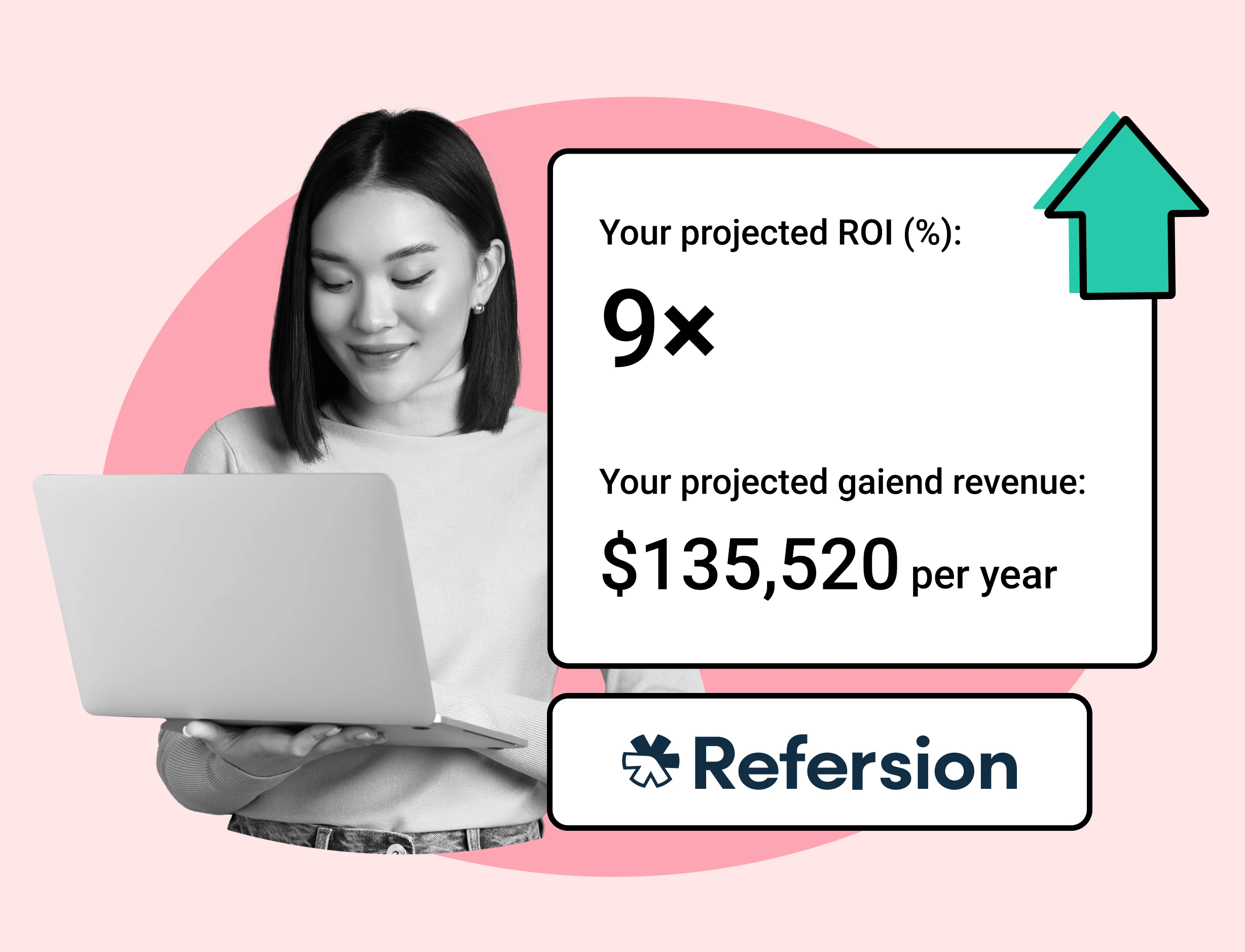
Reducing customer cost as a business with Refersion means using effective affiliate marketing to minimize expenses. Refersion’s tools help decrease acquisition and retention costs while increasing ROI. This article examines specific strategies and tools, including Refersion, for reducing these critical business expenses.
Reducing customer acquisition costs and increasing customer retention are crucial for maximizing a business’s profitability and sustainable growth.
Investing in customer retention is generally more cost-effective than acquiring new customers, as returning customers spend more and have higher lifetime value.
Affiliate marketing offers a low-risk, high-reward strategy for customer acquisition by compensating affiliates only after sales, thereby lowering upfront advertising expenses.
WeSupply enhances customer experience and reduces costs with flexible return rules, automated processes, and insightful analytics. Features like instant store credit, a branded returns portal, and QR code return labels streamline returns, prevent fraud, and boost loyalty. Simplify returns and increase ROI with WeSupply’s seamless integration and superior management system. Get started with WeSupply today!
Reducing customer acquisition and retention costs is essential for maximizing a business’s return on investment (ROI). By focusing on efficient strategies and leveraging the right tools, companies can ensure sustainable growth and enhanced profitability. This post will explore:
The significance of these costs
The impact of brand reputation
Strategies to reduce acquisition costs
The tools that can help businesses succeed in this endeavor.
Customer acquisition costs have been on the rise due to increased privacy measures on digital platforms, making it more challenging to collect customer data. These costs encompass various expenses such as marketing costs, promotions, labor, and targeted advertising aimed at non-existing customers.
In contrast, customer retention costs are generally lower and involve expenditures on loyalty programs, personalized offers, and customer service aimed at maintaining relationships with existing customers,.
The cost of acquiring a new customer, which includes the average price of marketing and other expenses, can be up to five times higher than retaining an existing one. High customer acquisition costs may indicate demographic shifts, ineffective marketing, or problems with core products and services.
The cost of acquiring a new customer, which includes the average price of marketing and other expenses, can be up to five times higher than retaining an existing one. High customer acquisition costs may indicate demographic shifts, ineffective marketing, or problems with core products and services.
In contrast, retention costs directly impact customer lifetime value (LTV), as high retention costs can lower margins and total revenue. Determining these costs involves dividing total retention program expenses by the number of active customers during a specific period.
Customer Acquisition Cost (CAC) refers to the total cost a business incurs to acquire a new customer, including all marketing, sales, and promotional expenses,. Calculating CAC involves dividing total acquisition costs by the number of new customers acquired within a specific period. A high CAC can limit a company’s ability to scale its customer base, as it can erode profitability if not managed properly,.
Comparing CAC with Customer Lifetime Value (CLV) helps businesses determine the return on investment (ROI) from their customer acquisition efforts. Lowering CAC is essential for sustainable growth and improved profit margins. Understanding and managing these costs can significantly impact a business’s ability to acquire new customers effectively and profitably.
Traditional advertising methods such as print, radio, and television can be significantly more expensive than digital marketing channels,. These methods often require substantial upfront investment, driving up overall customer acquisition costs. For example, producing a television commercial often requires budgets comparable to those of Hollywood movies.
Moreover, traditional advertising lacks the precise targeting and real-time performance tracking available in digital marketing, making it difficult to measure return on investment,. The wide reach of traditional advertising often results in high costs, especially when targeting specific audiences. Diversifying advertising channels can help mitigate these expenses and improve cost-effectiveness.
Investing in customer retention strategies can significantly lower overall CAC by reducing the need for constant new customer acquisition. Retaining existing customers is generally more cost-effective as it leverages established relationships and past marketing investments. For instance, increasing customer retention by just 5% can boost profitability by 75%.
Returning customers are more likely to advocate for a company, enhancing word-of-mouth marketing. They:
Spend 31% more on average compared to new customers
Are 50% more likely to try new products
The probability of selling to an existing customer is up to 14 times higher than selling to a new customer, making retention a highly profitable strategy.
Increasing customer retention rates can lead to higher profitability due to the lower associated costs compared to acquiring new customers. Higher retention improves Customer Lifetime Value (CLV), enhancing the overall revenue potential from each customer.
Here are some benefits of increasing customer retention rates:
Boost profits by 25% to 95% by enhancing retention rates by just 5%
Lower costs associated with acquiring new customers
Increase Customer Lifetime Value (CLV)
Build customer loyalty and trust
Increase word-of-mouth referrals
By focusing on customer retention, businesses can maximize their profitability and create long-term success.
A higher retention rate implies a more stable revenue stream and less dependency on new customer acquisition. High customer retention rates also indicate that a company’s offerings meet or exceed customer expectations. Maintaining a high retention rate often ties to exceptional customer service and high-quality products.
A positive brand reputation can attract new customers and drive customer loyalty. Brand reputation is shaped by various factors, including:
Customer service
Product quality
Advertising
Employee behavior
Companies with a strong brand reputation tend to outperform their competitors and enjoy higher customer retention rates.
Sentiment analysis helps businesses gauge how their brand is perceived, providing insights into customer loyalty and retention. Positive brand reputation builds trust and credibility, essential for attracting and retaining customers. Customers are more likely to recommend a brand they perceive positively, boosting word-of-mouth marketing and customer acquisition rates.
Providing exceptional customer service can:
Attract more customers
Retain customers longer
Improve customer satisfaction
Show that a brand values customer opinions
Enhance brand identity
Customer service is often the first direct interaction between a company and a potential customer, making it crucial for building trust and creating a positive first impression. Effective customer service can help manage crises and preserve a brand’s reputation by responding quickly to complaints and issues. Outstanding customer service can differentiate a brand in competitive markets, allowing for higher price points.
Positive customer experiences result in:
More favorable online reviews and recommendations
Satisfied customers becoming brand ambassadors, promoting positive messages about a company’s products or services
Tailored experiences that drive new sales
Understanding customer expectations and preferences is key to achieving these outcomes.
Consumers are willing to pay up to 18% more for luxury services if they receive an excellent customer experience. Moreover, 74% of consumers are at least somewhat likely to make a purchase based solely on their experience with a brand. Personalization and segmentation in marketing can enhance customer experience by catering to individual customer needs and preferences.
WeSupply enhances brand reputation and customer retention by providing powerful logistics analytics tools. By tracking Customer Satisfaction (CSAT) and Net Promoter Score (NPS), businesses can gain valuable insights into their post-purchase customer experience. This data-driven approach enables continuous fine-tuning and adaptation to customer needs, ensuring a delightful and seamless experience.
Key Features:
Customer Satisfaction (CSAT) Tracking: Easily measure customer satisfaction levels.
Net Promoter Score (NPS) Tracking: Gauge customer loyalty and likelihood to recommend.
Data-Driven Insights: Identify areas for improvement by tracking what went right and wrong.
Optimization Tools: Continuously adapt and refine processes to meet customer needs.
Enhanced Customer Experience: Deliver a seamless, delightful post-purchase experience to build loyalty.
With WeSupply, you can measure and improve every aspect of your operations, addressing issues promptly and optimizing performance to build lasting customer loyalty.
Create custom return policies
There are many moving pieces in ecommerce logistics. Book a quick call with our experts to see how WeSupply can help you take control by creating custom policies to handle them all easily. You get to decide how you want to handle final sale items, return window lengths, return request approvals, and more.
WeSupply empowers merchants to enhance post-purchase brand perception by leveraging branded tracking and returns pages. With WeSupply, customers enjoy a seamless, fully branded tracking experience, eliminating the hassle of third-party sites and providing real-time updates on their orders. This proactive approach to order and delivery notifications keeps customers informed, reducing anxiety and fostering loyalty. Additionally, WeSupply’s Branded Returns Portal offers a unified, personalized experience, boosting customer satisfaction and repeat business. Through post-purchase email and SMS notifications, merchants can engage customers with tailored offers and updates, ensuring a continuous, positive interaction even after the purchase.
Key Features:
Branded Tracking Pages for a unified, fully branded customer experience.
Real-time order tracking with estimated delivery dates and shipment updates.
Proactive delivery notifications to keep customers informed and reduce anxiety.
Branded Returns Portal for a seamless and personalized return experience.
Personalized offers and updates through post-purchase communications.
Companies seek to lower customer acquisition costs to enhance revenue by optimizing the balance between spending on acquiring new customers and the lifetime value these customers bring. Prioritizing appropriate audiences helps companies use their marketing resources efficiently and reduce customer acquisition costs. Retargeting customers who left incomplete actions can encourage them to complete purchases and reduce acquisition costs.
Increasing customer retention rates can significantly lower acquisition costs, as repeat customers tend to spend more. Implementing these strategies can help businesses achieve sustainable growth and improved profitability.
Targeting the right audience is crucial; utilizing diverse marketing strategies and resources for appropriate audiences ensures better engagement and optimized advertising spend. Retargeting customers who leave incomplete actions on websites can improve conversion rates by reminding them of the products they were initially interested in.
Experimenting with different types of advertising, such as shifting from Facebook and Instagram ads to platforms like TikTok or exploring native advertising, can reduce ad fatigue and find more cost-effective customer acquisition channels. Diversifying advertising channels helps in reaching customers across different touchpoints, increasing the likelihood of engaging potential customers.
Affiliate programs lower customer acquisition costs by compensating affiliates with commissions only after a sale is made, eliminating upfront advertising expenses,. Influencer marketing, similar to affiliate marketing, leverages the reach of social media influencers to promote products and engage potential customers.
The performance-based nature of affiliate marketing offers several benefits:
It reduces the risk of spending large portions of the budget on uncertain campaigns.
Affiliate networks or platforms can help minimize the cost of sourcing relevant partners.
It improves tracking and reporting, providing a clearer connection between marketing spend and the number of customers acquired.
It helps allocate budgets more efficiently.
Affiliate marketing is beneficial as affiliates use their influence to boost sales without any initial cost, making it a low-risk strategy for companies. Businesses only pay affiliates for the sales they generate, reducing financial risks. This model offers flexibility, allowing businesses to scale programs up or down with minimal cost.
Some benefits of affiliate marketing include:
High ROI due to the targeted and engaged audience affiliates bring
Reduced need for in-house advertising teams as affiliates can create content
Low-risk, high-reward strategy for customer acquisition
Providing meaningful content can build trust with customers, enhancing brand loyalty and making affiliate marketing campaigns more successful. Building trust with affiliates can enhance their effectiveness in marketing and lead to higher conversion rates.
Consumers are likely to trust recommendations from their favorite influencers, making affiliate marketing a powerful tool for acquiring new customers. Even if customers don’t immediately convert, positive exposure through affiliates increases the likelihood of future conversions. This trust-based approach significantly enhances the cost-effectiveness of affiliate marketing.
Effective affiliate program management involves a comprehensive strategy to generate lucrative incremental revenue by fostering genuine relationships with top-producing affiliates. This includes tasks like recruiting affiliates, providing them with necessary marketing resources, and regularly monitoring their performance to optimize the program.
Regularly reviewing affiliate performance and providing support are key management strategies. Maintaining constant communication with affiliates helps in keeping them engaged and supported. This ensures that affiliates remain motivated and productive, ultimately enhancing the profitability of the affiliate program.
Affiliate satisfaction is crucial as successful affiliates are motivated by supportive relationships and adequate resources, leading to higher productivity and loyalty. Open communication can significantly enhance the relationship between businesses and their affiliates. Timely payments and flexibility in commission structures are also important factors in maintaining affiliate satisfaction,.
Engaging affiliates through feedback and making them feel valued can improve their performance. Effective affiliate management can lead to increased sales and improved brand awareness. By focusing on affiliate satisfaction, businesses can ensure the long-term success of their affiliate programs.
Refersion is an affiliate marketing software that offers features like tracking affiliate performance, managing payouts, and consolidating information across multiple programs. The platform integrates seamlessly with major e-commerce solutions like Shopify, BigCommerce, and WooCommerce. Refersion’s integration capabilities include connecting your e-commerce platform and popular marketing apps.
Refersion provides the following features:
Automated payments to ensure affiliates receive consistent and accurate payouts
Tools for managing brand ambassador, influencer, and affiliate programs from a single platform
A Marketplace that matches affiliates to your brand’s audience, helping in building affiliate relationships
Customer Lifetime Value (CLV) is a metric that indicates the net profit your company can make from one customer over time. A high CLV means each customer brings in more revenue, allowing the company to spend more on acquiring and retaining customers. Improving customer satisfaction can significantly enhance customer lifetime value by fostering customer loyalty.
Increasing customer lifetime value involves strategies that:
Encourage repeated business from customers over an extended period
Focus on customer retention
Enhance customer experience
Implement loyalty programs
WeSupply integrates with a variety of powerful platforms to showcase reviews and ratings, enhancing customer retention, driving sales, and increasing Customer Lifetime Value (CLV). Key features include:
Loox: Display visually engaging user-generated content, including reviews and referrals.
Judge.me: Easily and automatically collect reviews via web, email, push, and SMS notifications.
Stamped: Enhance the customer experience with product reviews, ratings, referrals, and reward programs.
Yotpo: Support customer reviews and referrals, and boost recurring sales through SMS marketing and subscriptions.
Okendo: Capture impactful customer reviews and user-generated content.
Junip: Efficiently collect and display customer reviews on storefronts.
Reviews.io: Gather and showcase genuine text and video reviews quickly, highlighting authentic customer feedback.
44% of companies spend more on acquiring customers, whereas only 16% focus on reducing churn, despite retention being more cost-effective. Customer retention involves fostering loyalty that results in repeat purchases, reflecting the brand’s level of loyalty. A strong customer retention strategy ensures that customers are satisfied with their purchase and overall experience.
Customer engagement, such as via social media and online shopping, is a key component in improving retention. The longer a customer stays with a company, the more value they provide over their lifetime relationship with the brand. Implementing effective retention strategies can significantly enhance profitability and customer lifetime value.
Providing quality customer service is critical to enhancing customer experience and fostering loyalty. Poor onboarding is the leading cause of churn, making it crucial to have an effective onboarding process to ensure business growth. Addressing customer feedback helps improve the overall service quality and customer satisfaction.
Personalized customer interactions, based on data and preferences, can significantly enhance the customer journey. Great customer service can lead to customers paying up to 17% more for products. An omnichannel approach ensures a seamless customer journey across various online and offline channels.
Companies need to build a customer-centered culture, focusing on positive customer experiences to improve brand perception. Monitoring social media and responding quickly to complaints can help manage brand image and customer satisfaction. Effective management of brand image can help retain customers by building trust and loyalty.
Responding to customer reviews and feedback is essential for maintaining a positive brand image. Strong brand image helps in:
reducing customer acquisition costs by increasing customer trust and loyalty
building a positive brand reputation
leading to word-of-mouth referrals, lowering the need for heavy marketing spends.
Combat inconvenience with proactivity & self service
Book a quick call with our experts to see how WeSupply can help you make returns easy for your customers with a beautiful, self-service solution that makes their experience easier while also providing new ways to lower costs and earn back revenue.
A seamless return process can significantly boost customer satisfaction and loyalty. A positive return experience can lead to increased customer retention and repeat purchases. For instance, 92% of customers are more likely to make repeat purchases if the return process is easy.
A well-executed return program can enhance customer loyalty and incentivize repeat purchases. Implementing a customer-friendly return policy can reduce customer acquisition costs by retaining existing customers. Understanding and managing returns effectively is crucial for ecommerce businesses, with return rates averaging between 20-30% for online purchases.
A transparent return policy is essential as 61% of customers check it before making a purchase. Industry leaders like Zappos and Nordstrom have set high standards with customer-friendly return policies. A seamless return process can enhance customer trust and satisfaction, leading to increased customer loyalty and long-term relationships.
A customer-centric return policy can lead to increased repeat purchase rates. Clear and straightforward return policies can significantly influence customer loyalty and shopping decisions. Poor return experiences can drive customers away, resulting in lost sales and damage to the brand’s reputation.
WeSupply enhances customer experience and simplifies return policies by seamlessly integrating return options into the order lookup page. Customers can easily input their order ID and email address to search for orders and initiate returns, creating a smooth and hassle-free process. The platform allows for the creation of flexible return rules that cater to various use cases, ensuring a customer-centric approach.
Key features include:
Policy Visibility: The return policy is prominently displayed on the order lookup page for easy access.
Flexible Returns Rules: Create Smart Return Rules to perfectly match all item attributes.
Intelligent Dispositions: Use intelligent dispositions to effortlessly sort physical returns.
Automating returns can enhance customer convenience and reduce customer service calls. Automated returns systems can reduce errors and streamline the return process. An efficient automated return solution can lead to higher customer satisfaction and loyalty.
Automation allows for scalable returns management, accommodating increased return volumes as the business grows. Automated returns offer the following benefits:
Leveraging returns data to predict customer behavior and improve product quality, ultimately reducing future return rates
Ensuring a smoother and faster return experience
Reducing customer churn
WeSupply’s Automated Returns streamline the entire returns process, offering significant benefits by automating key aspects of returns management. This self-service approach makes it incredibly easy for customers to return items at any time without needing to contact customer support, speeding up the returns process and reducing customer frustration. By automating returns, businesses can also significantly reduce human errors, minimize costs, and prevent return fraud.
Key features include:
Reduce Returns Fraud Rate: Identify and stop return abusers immediately.
Reduce Human Errors: Eliminate manual calculations and validations to avoid mistakes.
Minimize RMA Cost: Save time and money by automating returns, exchanges, reshipments, and warranties.
Discover how WeSupply’s Automated Returns can revolutionize your returns process, saving time and money while enhancing customer satisfaction. Book a demo today and experience the seamless efficiency of WeSupply firsthand!
Analyzing return data aids businesses in identifying frequently returned products and the reasons for returns. Return data can help reduce return rates by informing improvements in products, services, and policies. Understanding the reasons behind product returns can refine product descriptions and quality control processes.
Return data can highlight the importance of accurate product descriptions and images, preventing returns due to unmet expectations. By using insights from return data, businesses can make targeted improvements to reduce future return rates. Tracking the frequency and reasons for returns helps merchants address problematic products and reduce future returns.
WeSupply’s Returns Analytics provide invaluable insights to help improve your product offerings and optimize your business. By leveraging SKU-level returns data, you can quickly identify return reasons at the product and variant levels, including issues with color, quality, and size. This data-driven approach allows for targeted product improvements and operational optimizations, ultimately increasing profit margins and recovering otherwise lost revenue.
Key features include:
Optimize Your Business, Increase Profit: Streamline processes, products, and return policy.
Increase Customer Lifetime Value: Analyze returns to understand customer needs and preferences.
Measure Financial Impact: Gain insights into revenue lost to returns and ways to reduce return rates.
Gain Actionable Insights: Utilize real-time return shipping analytics and return status analysis for better operational efficiency.
Unlock the power of data-driven insights with WeSupply’s Returns Analytics and take your product and business strategies to the next level. Embrace the future of returns management and start optimizing your processes for increased profitability and customer satisfaction today.
Appcues is a no-code product adoption platform that helps create effective onboarding processes, which can reduce user churn. Amplitude allows businesses to analyze user behavior and conduct A/B testing to improve feature adoption and retention. Tools like Crazy Egg use heatmaps to show which parts of a website customers interact with the most, helping optimize site design for better user experience.
Zendesk automates customer support with features like Answer Bot and a searchable knowledge base to help users resolve common issues. Automating customer service processes using tools can greatly improve customer retention by reducing manual errors and increasing efficiency. These tools provide valuable insights and streamline processes, enhancing overall customer satisfaction and retention.
WeSupply simplifies returns and exchanges, making the process seamless and efficient for both businesses and customers. By offering instant store credit, WeSupply encourages exchanges over refunds, thereby reducing return rates and boosting average order value. The branded returns portal enhances customer loyalty by providing a smooth, omnichannel experience. WeSupply’s self-service returns process saves time and gives customers complete control. Additionally, the platform offers autogenerated QR code return labels, making returns hassle-free, and returns tracking to keep customers informed. With integration capabilities, WeSupply connects seamlessly with existing tools, enhancing the overall customer experience.
Key features include:
Branded Returns Portal: Enhance customer loyalty with a branded, omnichannel experience.
Self-Service Returns Process: Save time and give customers control over returns.
Create Flexible Returns Rules: Develop a hassle-free, flexible return policy.
Autogenerated QR Code Return Labels: Simplify returns with QR codes.
Returns Tracking: Keep customers informed with easy tracking.
Post-purchase Notifications: Engage customers with personalized emails and SMS.
Buy Online, Return In Store: Drive traffic to physical stores and reduce transportation costs.
Integrations: Connect seamlessly with hundreds of third-party tools for a superior customer experience.
With WeSupply, you can simplify returns and exchanges while enhancing customer loyalty and satisfaction. Our comprehensive solutions not only streamline the returns process but also drive increased ROI by reducing return rates, boosting sales through exchanges, and integrating seamlessly with your existing tools. Experience the benefits firsthand and see how WeSupply can positively impact your bottom line. Discover your potential savings with our ROI Calculator. Try it now and unlock the true value of WeSupply!
Analyzing return data can help businesses identify patterns and improve product offerings, potentially turning returns into repeat purchases. WeSupply offers the following features to help businesses manage returns and enhance the customer experience:
Incentivizing customers to take store credit over refunds, promoting exchanges and boosting profits
Automating notifications for return status, delivery confirmation, and refund confirmations to keep customers informed
Providing analytics and insights on return patterns to help businesses make data-driven decisions
By utilizing these features, businesses can effectively manage returns and create a positive purchase experience for their customers, ultimately saving money in the long run.
Implementing a points program can incentivize customers to make repeat purchases by offering rewards for actions like product reviews or social sharing. Referral programs can increase repeat purchases by leveraging existing customers to recommend the brand, utilizing social proof effectively. These strategies help businesses turn returns into opportunities for increased customer lifetime value.
In 2020, EVEREVE faced a significant challenge as online shopping surged due to COVID-19, leading to a spike in return rates. Traditionally, online return rates hover around 30%, with some apparel sectors experiencing up to 50%. EVEREVE sought to reimagine their returns process, which was previously manual and lacked visibility, leading to inefficiencies and customer service burdens.
The solution came with WeSupply’s technology, which automated returns through integrations with platforms like Magento, Zendesk, Celerant, and Veeqo. This new system focused on proactivity, self-service, and return flexibility, turning returns into opportunities. The benefits included cost savings, faster and more accurate returns, and a streamlined customer experience, leading to higher customer satisfaction and loyalty.
Read how WeSupply helped EVEREVE turn their returns into an opportunity and revolutionize their business operations.
Balancing customer acquisition costs with lifetime value is hugely important for business success. Implementing strategies such as affiliate marketing, customer retention programs, and leveraging tools like Refersion can help businesses achieve this balance and maximize profitability. By focusing on efficient use of marketing resources and enhancing customer experience, companies can lower acquisition costs and increase customer lifetime value.
In summary, reducing customer acquisition costs while maximizing customer lifetime value is crucial for business success. Strategies like affiliate marketing, effective retention programs, and leveraging tools like Refersion can significantly enhance profitability. By focusing on customer satisfaction and retention, businesses can achieve sustainable growth and long-term success.
WeSupply enhances customer experience and reduces customer costs by seamlessly integrating return options into the order lookup page, allowing customers to easily search for orders and initiate returns. The platform’s flexible return rules and customizable conditions ensure a hassle-free return policy tailored to various use cases. Automated returns streamline the process, reduce human errors, minimize costs, and prevent return fraud. Returns analytics provide valuable insights for product improvement and business optimization, increasing profit margins and customer lifetime value. With features like instant store credit, a branded returns portal, self-service returns, autogenerated QR code return labels, and comprehensive integrations, WeSupply offers a superior, efficient returns management system that drives customer loyalty and satisfaction. Get started with WeSupply today and transform your returns process!
Customer Acquisition Cost (CAC) refers to the total cost a business incurs to acquire a new customer, including all marketing, sales, and promotional expenses.
Customer retention is more cost-effective than customer acquisition because it leverages established relationships and past marketing investments, requiring less expenditure compared to acquiring new customers.
Affiliate marketing reduces customer acquisition costs by compensating affiliates with commissions only after a sale is made, eliminating upfront advertising expenses and tying costs directly to successful conversions. This promotes cost-effectiveness and a focus on successful conversions.
Key features include instant store credit to encourage exchanges, a branded returns portal, a self-service returns process, autogenerated QR code return labels, and returns tracking. WeSupply also offers post-purchase notifications and seamless integrations with third-party tools.
WeSupply automates returns, calculates restocking fees, applies vendor-specific policies, and identifies return fraud. These features reduce the number of support tickets, lower RMA costs, and streamline the returns process, ultimately saving time and money.
By simplifying returns, encouraging exchanges over refunds, and providing insightful analytics, WeSupply helps reduce return rates, boost sales, and enhance customer loyalty, leading to increased ROI.
Yes, WeSupply does have an official Shopify App. You can download and begin to integrate it with your Shopify store.
Yes, WeSupply has an official extension for Magento. The WeSupply x Magento integration allows for automating order tracking experiences, reducing customer inquiries, automating shipping email and SMS notifications, and providing a fully branded order tracking experience
Yes, WeSupply has an official BigCommerce App. You can integrate WeSupply with your BigCommerce store to improve your post-purchase customer experience.
Learn How To Create Successful Post Purchase Email Campaigns
Build an effective post-purchase email flow that helps you increase customer satisfaction and drive revenue growth!

Strategies to optimize the returns process for jewelry watch brands, focusing on cost reduction, customer satisfaction, and brand protection.
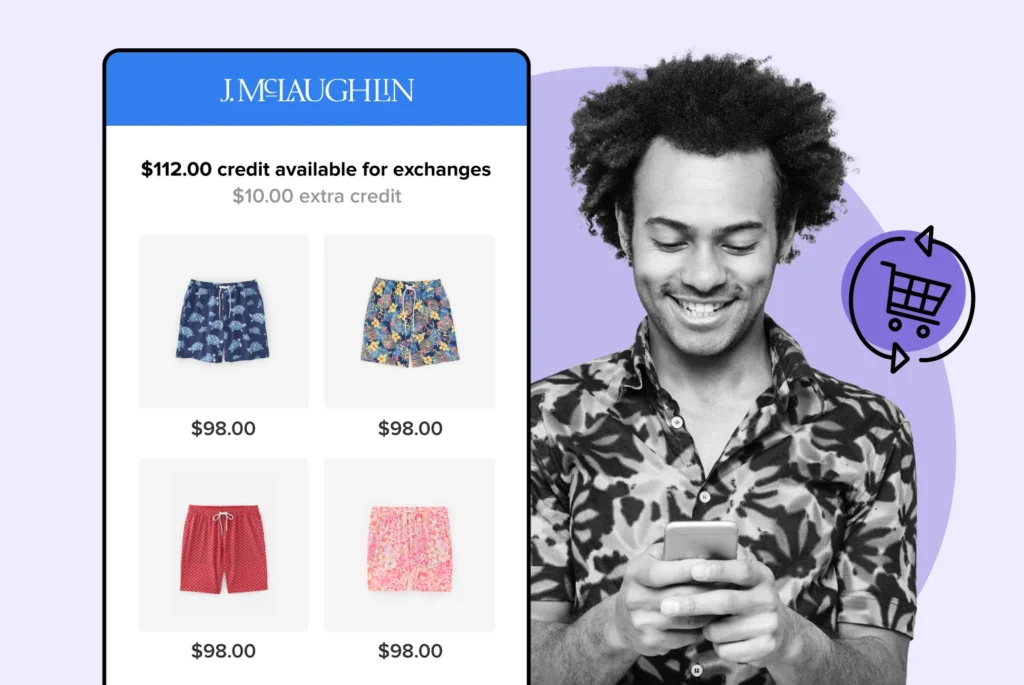
This article will show you how to optimize the sales and return process for swimwear, boosting customer satisfaction and revenue!

Practical strategies to optimize returns and exchanges for online furniture stores, helping reduce costs and improve customer satisfaction.
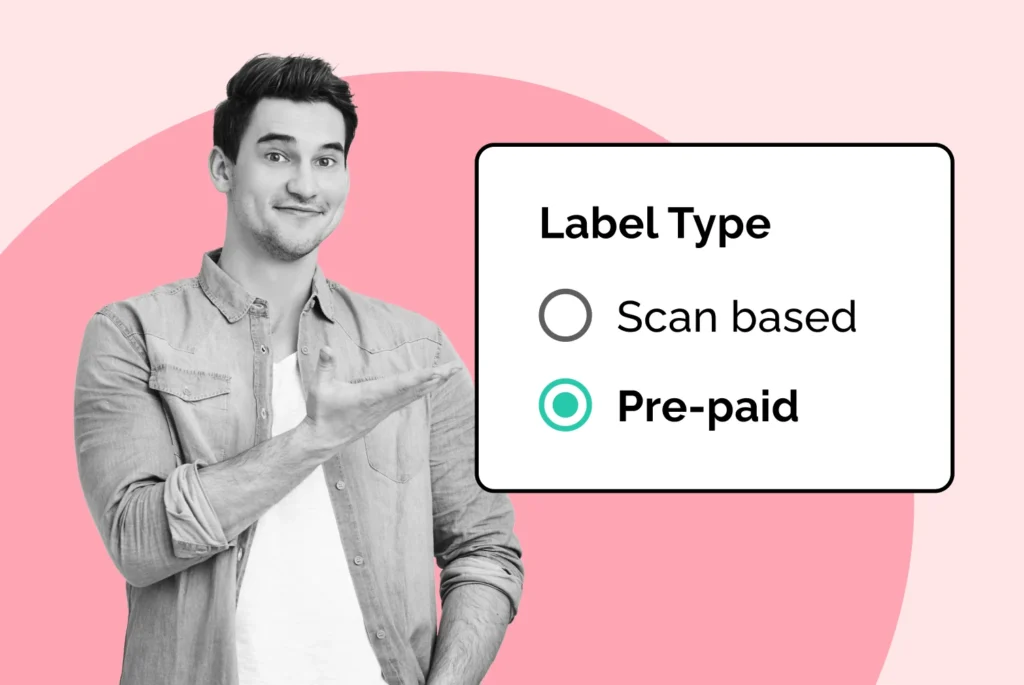
This article unpacks how pre-paid labels can both improve the return experience for customers and streamline operations for retailers.
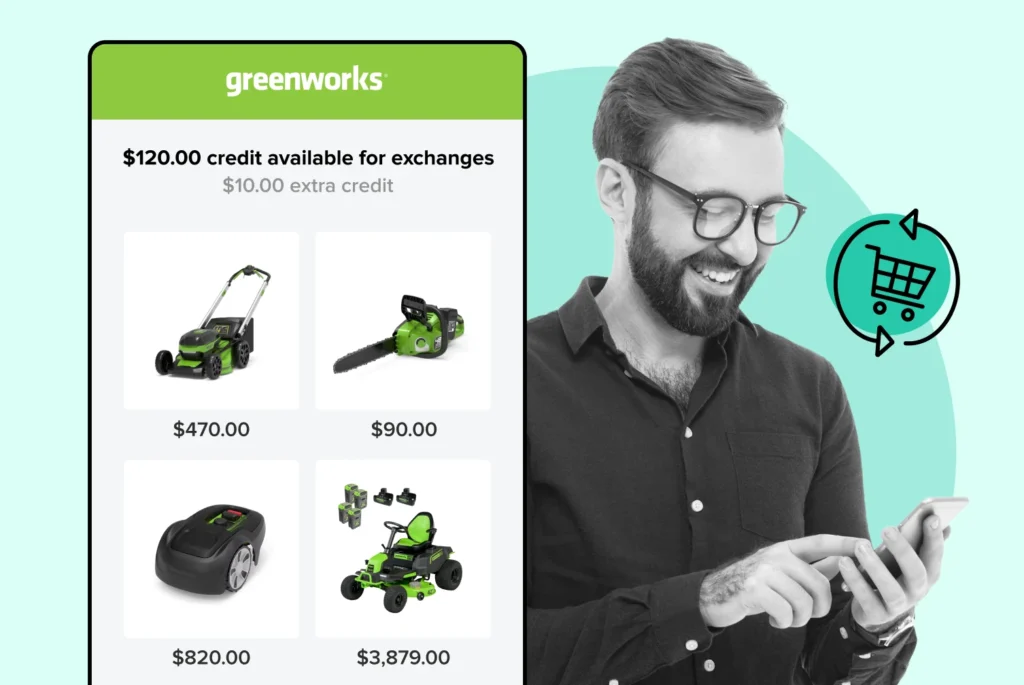
Discover through our comprehensive guide how recommerce is reshaping the retail space, driving economic value, and fostering environmental sustainability.
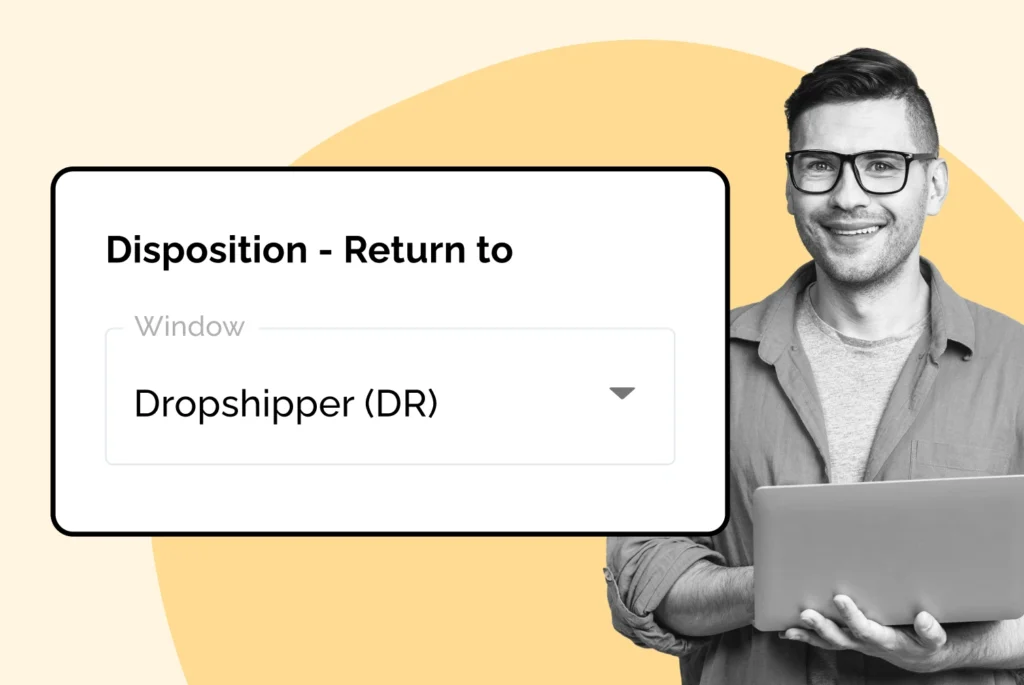
Managing dropshipping returns requires clear, actionable strategies. Turn them into a source of customer trust rather than frustration!
Let’s explore how tracking systems can enhance customer satisfaction, improve operational efficiency, and provide valuable business insights!

Learn the tangible benefits this integration delivers, as we unpack the advantages and practical steps of merging these powerful tools.

Discover how to refine your returns process, address common issues, and emerge as a leader in a customer-centric market!